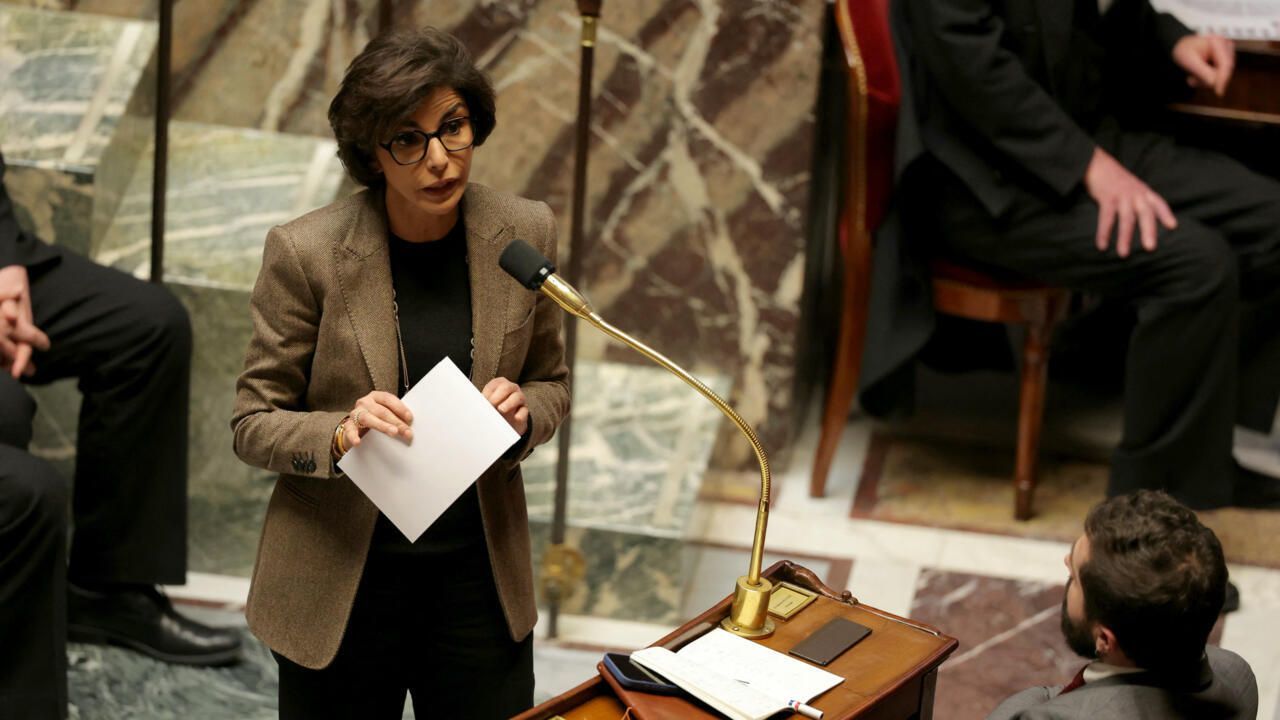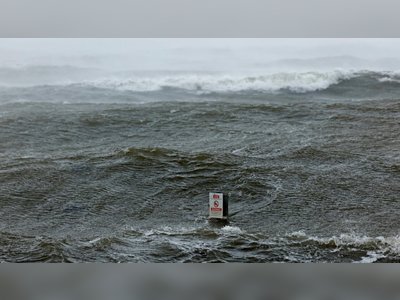
Verbal Altercation Halts Examination of Public Broadcasting Reform in France
Rachida Dati's heated exchange with Assembly official leads to suspension of debates on audiovisual reform.
A verbal altercation involving Rachida Dati, France's Minister of Culture, and an assembly administrator resulted in the suspension of discussions regarding the reform of public broadcasting.
The clash occurred on the evening of April 1, when Dati attempted to submit an amendment deemed inadmissible by the assembly’s administrator, who provided an explanation for the ruling off-camera.
The chair of the cultural affairs committee, Fatiha Keloua Hachi of the Socialist party, described the incident as a 'serious' confrontation, while Dati's entourage characterized it as a simple 'lively exchange.'
The debates had commenced earlier that day with a significant agenda, including around one thousand proposed amendments to the legislation aimed at consolidating France’s public audiovisual entities under a new holding company, France Médias.
Keloua Hachi announced the suspension of the examination, stating, 'I cannot tolerate this type of behavior,' amid ongoing disputes over late amendments recently filed by the government.
Dati's aides insisted that the suspension was politically motivated, linked to the left's inability to secure the necessary votes, asserting that the government's amendments were a response to the left's obstruction of the process.
The resumption of the debates originally scheduled for April 2 is now uncertain.
Dati emphasized the potential threats to public broadcasting in the face of competitive pressures from other media platforms, stressing the necessity of reform.
The reform proposal, which has already passed a first reading in the Senate in 2023, includes the establishment of France Médias to oversee public broadcasters such as France Télévisions and Radio France, under the guidance of a president.
However, recent modifications suggest that France Médias Monde, the international arm of France's public audiovisual service, may be excluded from this new structure.
This adjustment was highlighted in a government evaluation of the reform and voted on prior to the suspension of proceedings.
Initially, the original plan aimed at merging these entities to create a French version of the BBC, but this strategy was disrupted by the dissolution of the National Assembly in mid-2024. Dati clarified that the reform is not a merger and reiterated that it would not compromise employees' interests, noting that between 15,000 and 16,000 positions are at stake.
On the same day, protests erupted near the Palais-Bourbon, where hundreds rallied against the proposed reform.
Union representatives voiced concerns over the implications of the new holding company, warning that it would lead to years of suffering for employees as it appears to pursue cost-cutting measures.
These protests coincided with a second day of strikes among the affected organizations, particularly at Radio France, where the National Union of Journalists reported a 72% strike rate among journalists.
France Télévisions saw a lower participation rate of 9%, as indicated by management.
The legislative timeline for the reform is tight, with a projected assembly discussion set for April 10; however, this could be postponed due to the prior examination of another economic simplification bill.
Earlier in March, Dati had appointed Laurence Bloch, former director of Radio France’s antennas, to oversee the reform project, with conclusions expected in the coming weeks.
The government’s assessment includes plans for new subsidiaries under France Médias, designed to enhance cooperation between radio and television and to better unify regional networks.
Support for the reform comes primarily from President Macron's camp and right-wing factions, while national populist entities express intentions for the eventual privatization of public broadcasting.
The clash occurred on the evening of April 1, when Dati attempted to submit an amendment deemed inadmissible by the assembly’s administrator, who provided an explanation for the ruling off-camera.
The chair of the cultural affairs committee, Fatiha Keloua Hachi of the Socialist party, described the incident as a 'serious' confrontation, while Dati's entourage characterized it as a simple 'lively exchange.'
The debates had commenced earlier that day with a significant agenda, including around one thousand proposed amendments to the legislation aimed at consolidating France’s public audiovisual entities under a new holding company, France Médias.
Keloua Hachi announced the suspension of the examination, stating, 'I cannot tolerate this type of behavior,' amid ongoing disputes over late amendments recently filed by the government.
Dati's aides insisted that the suspension was politically motivated, linked to the left's inability to secure the necessary votes, asserting that the government's amendments were a response to the left's obstruction of the process.
The resumption of the debates originally scheduled for April 2 is now uncertain.
Dati emphasized the potential threats to public broadcasting in the face of competitive pressures from other media platforms, stressing the necessity of reform.
The reform proposal, which has already passed a first reading in the Senate in 2023, includes the establishment of France Médias to oversee public broadcasters such as France Télévisions and Radio France, under the guidance of a president.
However, recent modifications suggest that France Médias Monde, the international arm of France's public audiovisual service, may be excluded from this new structure.
This adjustment was highlighted in a government evaluation of the reform and voted on prior to the suspension of proceedings.
Initially, the original plan aimed at merging these entities to create a French version of the BBC, but this strategy was disrupted by the dissolution of the National Assembly in mid-2024. Dati clarified that the reform is not a merger and reiterated that it would not compromise employees' interests, noting that between 15,000 and 16,000 positions are at stake.
On the same day, protests erupted near the Palais-Bourbon, where hundreds rallied against the proposed reform.
Union representatives voiced concerns over the implications of the new holding company, warning that it would lead to years of suffering for employees as it appears to pursue cost-cutting measures.
These protests coincided with a second day of strikes among the affected organizations, particularly at Radio France, where the National Union of Journalists reported a 72% strike rate among journalists.
France Télévisions saw a lower participation rate of 9%, as indicated by management.
The legislative timeline for the reform is tight, with a projected assembly discussion set for April 10; however, this could be postponed due to the prior examination of another economic simplification bill.
Earlier in March, Dati had appointed Laurence Bloch, former director of Radio France’s antennas, to oversee the reform project, with conclusions expected in the coming weeks.
The government’s assessment includes plans for new subsidiaries under France Médias, designed to enhance cooperation between radio and television and to better unify regional networks.
Support for the reform comes primarily from President Macron's camp and right-wing factions, while national populist entities express intentions for the eventual privatization of public broadcasting.











